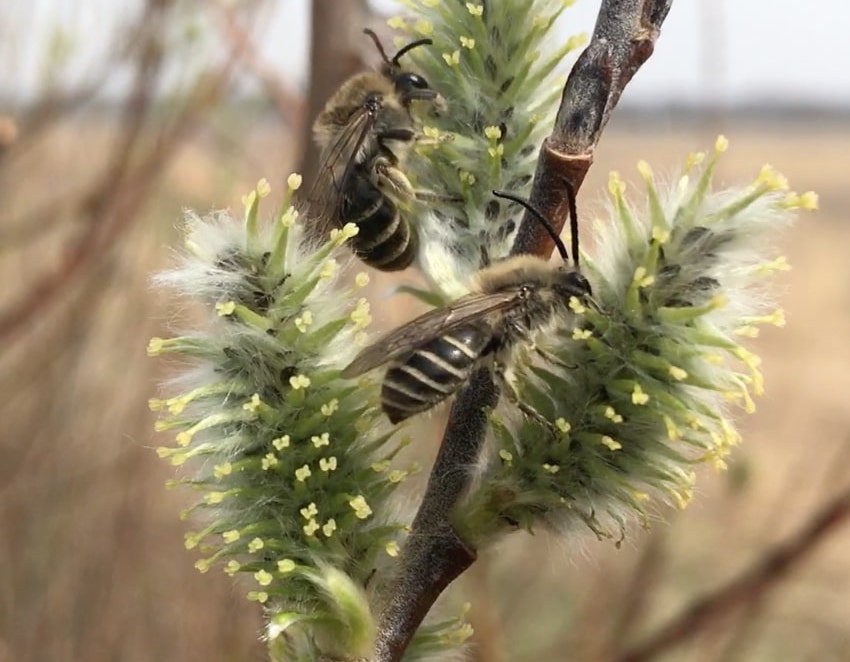The pussy willow (Salix discolor) is a native shrub that is one of the first plants to flower in the spring. Because they start blooming in very early spring, pussy willows are a valuable source of pollen and nectar for pollinators. They are usually found growing in damp to wet soil as pussy willow roots are extensive and take up a lot of water. They have a distinctive type of flower, called a catkin, that is fuzzy and grey with no fragrance nor petals. The word “catkin” comes from the Dutch word for kitten (katteken), for they look similar to the tail of a cat.
The pussy willow is Dioecious (Latin for separate house), a term meaning that the male and female flowers are on separate plants. Male plants have larger catkins with longer filaments, and female pussy willows have smaller, thicker, and greener catkins. While male catkins provide both nectar and pollen, female catkins only produce nectar and bloom slightly later. The fuzzy coating of the catkins helps keep the reproductive parts warm and protected. Some hummingbirds even use that fluffy coating in their nests!
Insects are required for the pussy willow to pollinate, unlike many other trees that rely on wind. Their early-spring timing is mutually beneficial, allowing the pussy willows to effectively pollinate when the pollinators are desperate for sources of food. These pollinators include the native unequal cellophane bee (Colletes inaequalis), an important generalist pollinator that pollinates a wide variety of wild trees and shrubs. Pussy willows are also a popular larval host, providing a home for a variety of native moths.
Even if most flowers aren’t in bloom yet, look out for blooming pussy willows! They are native to the Midwest and Northeast U.S., and could be the secret behind all of the flowers yet to bloom.












